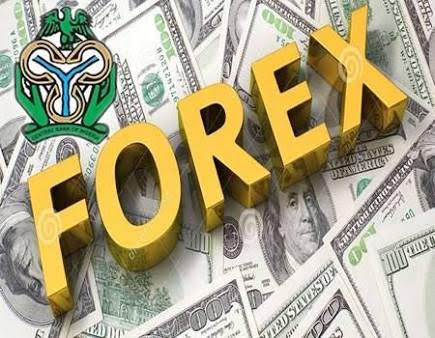The naira has been weakened further on Monday, trading at 475 to the United States Dollar in the parallel market amid a rise in demand for the greenback. The naira was trading at 462-463 at the unofficial market at the start of this month.
The Nigerian currency which has come under pressure in recent days, fell to 470 per dollar on Friday from 468 on Thursday. In the Investors’ and Exporters’ forex window, the naira closed at 386 to a dollar on Monday, compared to 385.50 at which it opened, according to data from FMDQ Group.
The Central Bank of Nigeria, CBN has kept the official exchange rate at N379/$1 since August, when the naira was devalued for the second time this year from 306 per dollar. It was further devalued to 360 in March from 306.
READ ALSO: CBN MPC Members Expressed Concerns Over Forex Demand Pressure
The latest data from the Central Bank of Nigeria showed that the forex reserve fell to $35.60bn as of November 13, 2020 from $35.69 on October 28. This is not unconnected with the decline in oil production caused by the OPEC cut deal.
Financial expert said foreign portfolio investment in the country had plummeted, adding that diaspora remittances had also declined significantly.
The Managing Director/CEO, Financial Derivatives Company Limited, Mr. Bismarck Rewane had said earlier this month that the naira would weaken in the parallel market and likely depreciate to 470-475 against the dollar in November and December.
He said with oil prices still under pressure again, the supply of forex into the country would be further limited and that the resumption in international flights, trading and manufacturing activities will heighten forex demand pressures.
It was also reported last week that some members of the Monetary Policy Committee of the Central Bank of Nigeria expressed concerns at their last meeting over the high demand pressure in the nation’s foreign exchange market.
The Deputy Governor, Corporate Services Directorate, CBN, Mr. Edward Adamu said the demand pressure in the forex market had remained elevated in the face of the declining accretion to external reserves and declining private inflow. He added that legitimate sources of forex demand, speculation and other frivolous demands had contributed to sustaining pressure on the naira exchange rate.
Last week, Bloomberg reported that the naira had lost all ground it gained after the regulator started weekly interventions, signaling the continuous existence of pent-up demand for the greenback. The CBN resumed sale to licensed Bureau de Change operators in September after the Federal Government opened up international travel following the lifting restriction caused by the COVID-19 pandemic.

